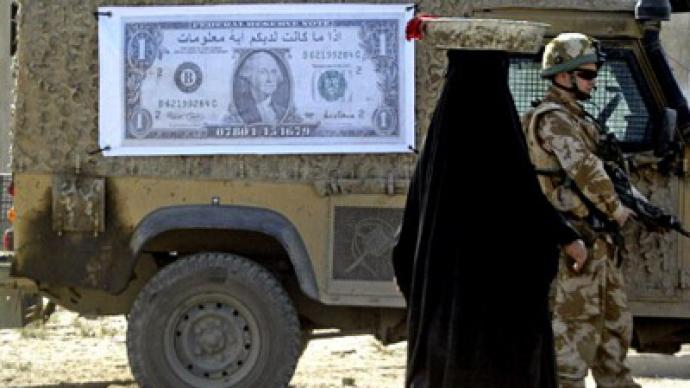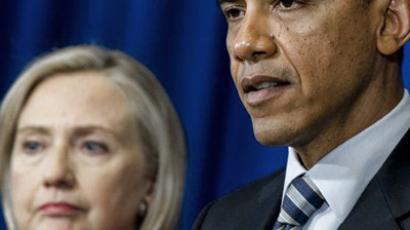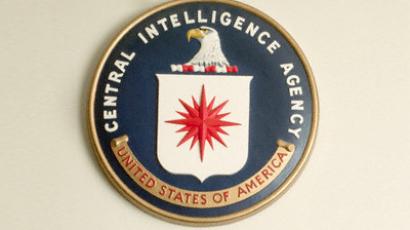War Against Iran and World Crisis

Amid the global crisis, the hype around Iran's nuclear program is growing. Political scientist Igor Panarin believes that part of the British-American transnational elite is trying to use a war against Iran to save the dollar from collapse.
In the article below, Panarin explains his view.The war in Libya is over; it didn’t, however, grow into a global firestorm from the Maghreb to Bahrain, much to the chagrin of some secret conductors trying to save the dollar with a bloody war. And, immediately, we start hearing the same old media chants about Iran's alleged military nuclear program. If Iran's Oil Exchange, with settlements in euro, had opened on March 20, 2006, it would have destroyed the monopoly of the dollar. On March 19, 2006, the USA could have started a war against Iran; by that time, under the pretext of chasing Iraqi rebels, the USA had deployed on Iran's border the largest military force ever since the 2003 invasion of Iraq. However, after secret Iran-American negotiations, Iran did not open its exchange to sell oil for euros. The USA reached its goal; the dollar was saved. Mind that in December 2011, the US intelligence services issued a special report that denied the conducting of any military nuclear program in Iran. The issue was 'frozen' until fall 2011.The key role in the new attempt to spark a war against Iran belongs to some of the Israeli elite. Israeli president Shimon Peres has already stated that Israel is leaning towards a military solution to the Iranian threat rather than the diplomatic option. On November 13, world media reported that Israel would not warn the USA in case of a pre-emptive strike on Iran's nuclear facilities, should Israel's government decide to take the plunge. This is due to the fact that most of the US top military brass has been determinedly against fighting Iran since 2007. The USA, Israel, and Great Britain are obviously trying to whip up information tension around the situation, which usually leads to military action: a strategy vividly illustrated by the campaign in Libya. In other words, the West is trying to sell its case against Iran in exactly the same way as it did with Iraq and its alleged chemical weapons program. The propaganda campaign against Saddam Hussein’s regime was eventually followed by an invasion in 2003, even though XXX subsequently never found any WMDs in Iraq. What is essentially important to realize in this situation is the fact that neither Russia, nor China, nor any other country within BRICS nor the Shanghai Co-operation Organization would like to see a military operation launched against Iran. Right now, Tehran should actively address every sane political group in the US and the UK, seeking to appeal to the kind of people who want a stable and secure America (Britain) and feel that it is necessary to keep transnational vested interests at bay. If Iran were to succeed in making its case to those reasonable Brits and Americans, the current standoff could be resolved before it escalates into a war, sparing the world some serious trouble. Iran is the new prospective hotspot selected by the transnational elite for exporting turmoil, with a view to creating an “arc of instability” spanning Afghanistan, Pakistan, Iraq and Iran. This strategy may be aimed at the following objectives: 1. Undermine the economies of China and India – the increasingly powerful competitors to the West – by interrupting the supply of Iranian oil to these countries. 2. Dramatically weaken the euro by creating a vast area of instability at Europe’s doorstep. 3. Set up an enormous area of epidemic and environmental hazard in Eurasia in order to impede the formation of a Eurasian Union. 4. Fuel strategic instability in order to unsettle the process of succession in Russia and in China in 2011-2012. The present situation bears a strong similarity to the information warfare scenario that we have already seen played once, 5 years ago. Back then, international media was also speculating about a possible military strike against Iran, citing well-positioned sources. Luckily, neither the United States nor Israel eventually resolved to start yet another war in the Gulf back then. Let us hope common sense will similarly prevail this time.
Prof. Igor Panarin, Doctor of Political Sciences, specially for RT
The statements, views and opinions expressed in this article are solely those of the author and do not necessarily represent those of RT.














